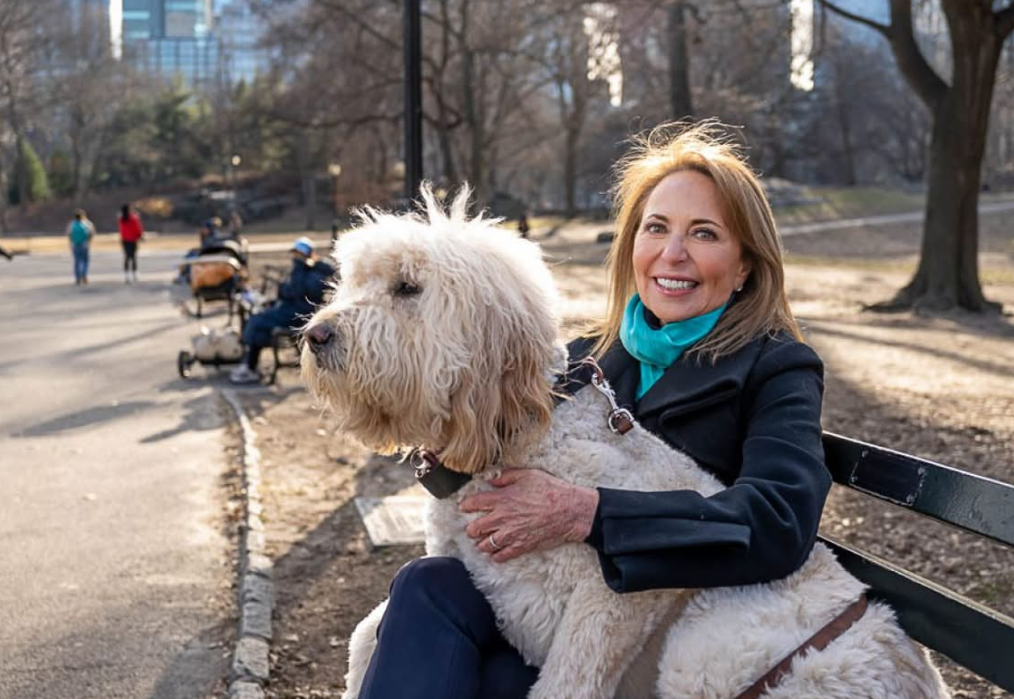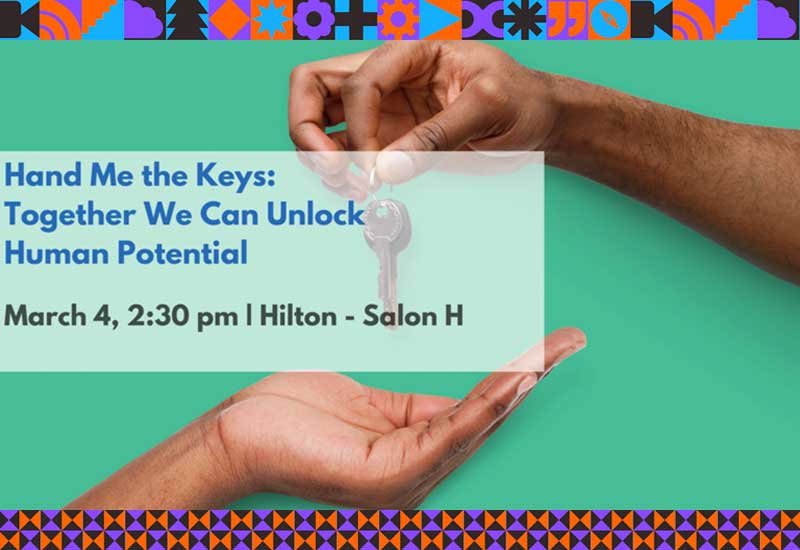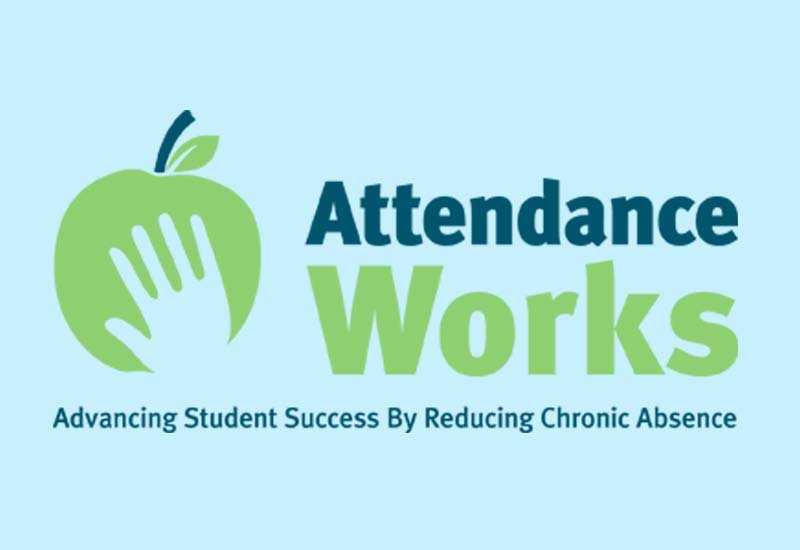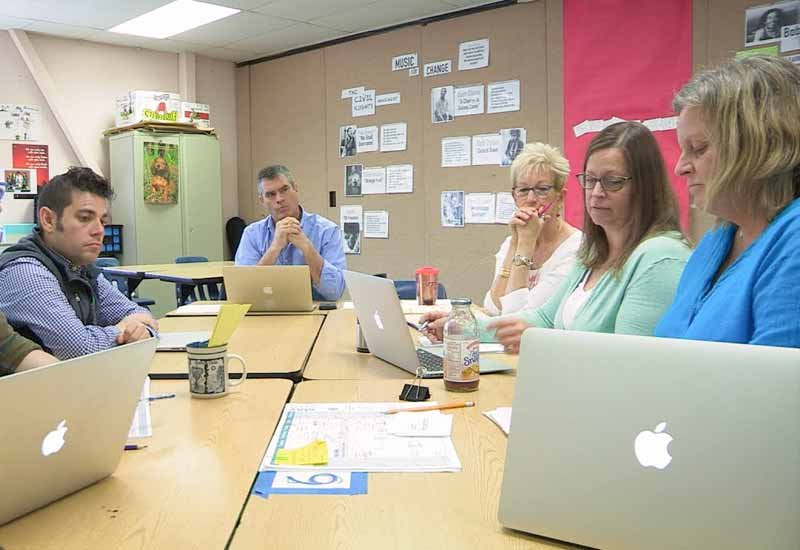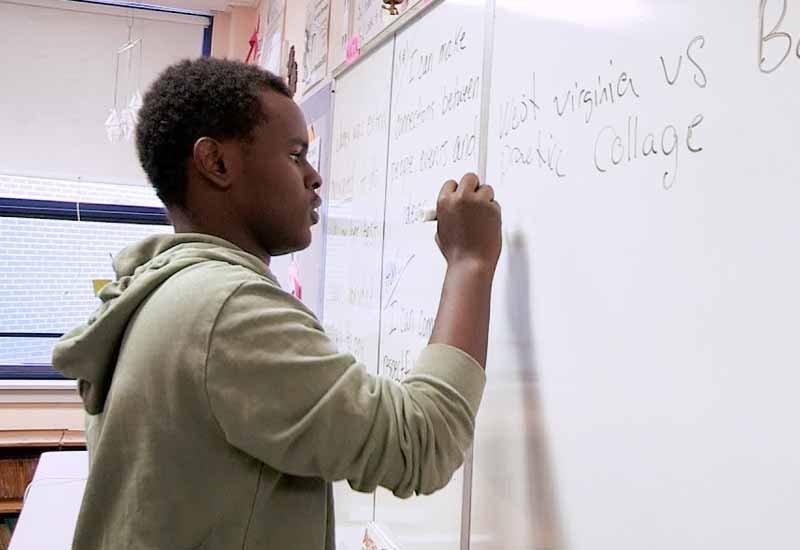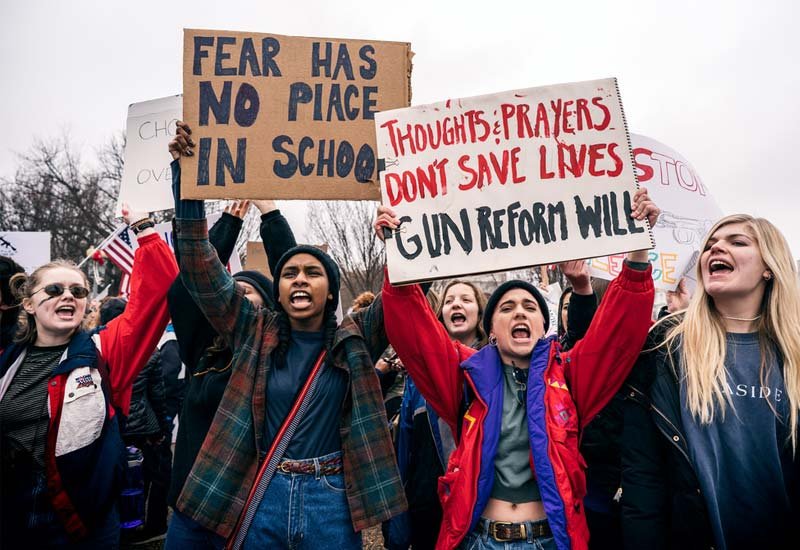
Resource Library
Use the filter options below to find the resources you are looking for.
Gallery | List
The Biology of Gratitude
Pamela Cantor, M.D. explains how Thanksgiving rituals activate neural pathways for healing, safety, and well-being, offering an annual reset for mind and body. Originally posted on Psychology Today.
November 26, 2025
What My New Hip is Teaching Me
A personal perspective from Pamela Cantor, M.D. on how healing works in the body and brain, why trusted relationships accelerate recovery, and how we grow stronger. Originally posted on Psychology Today.
November 24, 2025
Connected for Kids National Launch Webinar
Pamela Cantor, M.D. spoke as part of the Connected for Kids national launch webinar, hosted by Child Trends. The event brought together leaders from education, youth development, health, and philanthropy to introduce a shared framework for helping children flourish.
November 13, 2025
Handbook for Assessment in the Service of Learning, Volume I
In two chapters of the open-source Handbook for Assessment in the Service of Learning, Volume I, Pamela Cantor, MD highlights how assessment can be designed to reveal strengths and shape learning.
Attendance Works Q&A: Pamela Cantor, M.D. on Anxiety and Chronic Absence
Attendance Works invited Pamela Cantor, M.D., Co-Founder and CEO of The Human Potential L.A.B., to share her perspective on the connection between student anxiety and rising rates of chronic absence.
September 2025
The Science of Experiential Civics
In an article for NASBE’s State Education Standard journal, Pamela Cantor, M.D. and co-authors from History Co:Lab and iThrive Games explain why civics education works best when it is relational, experiential, and rooted in community.
New Research: Digital Mental Health for Young People
A recent large-scale meta-analysis examining the effectiveness of universal digital mental health interventions (DMHIs) for children and adolescents referenced research by Dr. Pamela Cantor and colleagues on brain plasticity and the role of context in development.
July 2025
The Texas Floods: 6 Ways to Help Kids Feel Safe Again
After a devastating natural disaster, young people need trusted relationships that restore safety. Learn six science-backed ways adults can help kids recover, regulate stress, and build hope in the aftermath of trauma from Pamela Cantor, M.D.
July 11, 2025
The Future of The Science of Learning and Development
Pamela Cantor, M.D. and David Osher on Whole-Child Development, Learning, and Thriving in an Era of Collective Adversity, Disruptive Change, and Increasing Inequality, from the Routledge publication The Heredity Hoax: Challenging Flawed Genetic Theories of Human Development.
Go Beyond Grades: Pamela Cantor, M.D. Answers Questions from Parents
Watch Pamela Cantor, M.D. answer questions from parents in this video series from The Human Potential L.A.B. and Learning Heroes, part of their Go Beyond Grades campaign.
Spring 2025
The Hechinger Report | Opinion: Stop Labeling Kids and Start Revealing Their Strengths
In an op-ed published in The Hechinger Report, Pamela Cantor, M.D. challenges the negative labels often applied to young people and advocates for a science-based, strengths-focused approach to support their recovery and growth.
March 31, 2025
The Pandemic’s Lasting Impact on Students: Pamela Cantor, M.D., in The New York Times
Pamela Cantor, M.D., was featured in The New York Times, discussing the lasting impact of the pandemic on students. She compares the class of 2021 to actors rehearsing in isolation, then suddenly performing live.
March 14, 2025
Center for Transformative Teaching & Learning Winter Webinar Series 2025
Pamela Cantor, M.D. joined the Winter Webinar Series hosted by the Center for Transformative Teaching & Learning (CTTL) to explore how psychological safety and trust are essential precursors to fostering a sense of belonging in learning environments.
February 13, 2025Finding a Sense of Safety During the Los Angeles Wildfires
Pamela Cantor, M.D., shares 9 actionable tips to help young people feel safe and supported during the Los Angeles wildfires. Learn the biology of stress: how stress affects the brain and why relationships and routines are essential for recovery and resilience.
January 22, 2025
Watch: Pamela Cantor, M.D., Highlights 2025
Watch highlights from recent Pamela Cantor, M.D. interviews and presentations, featuring her insights on topics including education, human development, and unlocking human potential.
Why Optimism Is Your Superpower (And How To Unlock It In 5 Easy Steps)
A Forbes article by Talia Milgrom-Elcott, leader of Beyond100K, highlights the science of optimism and how it can transform lives. Quoting Pamela Cantor, M.D., the article describes the link between our actions and biological resilience, emphasizing a commitment to meaningful steps that unlock human potential.
Pamela Cantor, M.D., Reflects on David Brooks’ “How the Ivy League Broke America”
Pamela Cantor, M.D. reflects on David Brooks’ “How the Ivy League Broke America.” “A meritocracy should discover talent and skills of all kinds and grow it.”
November 20, 2024
Forbes and New York Social Diary Quote Pamela Cantor, M.D. from Hope for Depression Luncheon
Pamela Cantor, M.D., delivered the keynote at the 18th Annual Hope for Depression Luncheon, highlighting resilience, relationships, and the power of agency. The event was reported on by New York Social Diary.
Aspen Forum for Community Solutions Opportunity Youth Forum (OYF) Fall Convening 2024
Pamela Cantor, M.D., Co-Founder and CEO of The Human Potential L.A.B., opened the Aspen Institute’s Opportunity Youth Forum Fall Convening with a keynote and plenary on redesigning systems to support thriving youth.
October 2024
Pamela Cantor, M.D. Explains The Biology of Learning and Its Link to Belonging
Pamela Cantor, M.D., explains the biology of learning and its connection to belonging in this video from History Co:Lab as part of the Building Belonging Project, a product of the Jacobs Foundation and New America’s Learning Sciences Exchange (LSX) fellowship.
Pamela Cantor, M.D.’s Call to Action: Measuring What Truly Matters for Learning and Development
Eric Tucker reflects on Pamela Cantor, M.D.’s keynote at the Advancing Artificial Intelligence, Measurement and Assessment System Innovation Summit. Like scientific revolutions of the past, Dr. Cantor contends that we need a paradigm shift in understanding and measuring human learning and development.
After Apalachee: 9 Tips for Parents After a School Shooting
The tragic shooting at Apalachee High School in Georgia highlights the ongoing threat of gun violence in schools. Pamela Cantor, M.D., explores the biological impact of stress on children's ability to learn and provides tips for adults to help reassure and support young people in the aftermath of such events.
Optimism Is A Natural Anti-Anxiety Med. Here’s How It Works.
In a world where uncertainty seems to be the only constant, maintaining a positive outlook is more crucial than ever. A Forbes article by Talia Milgrom-Elcott, leader of Beyond100K, delves into the power of optimism as a solution to 2024's complexities and challenges and shares insights from Pamela Cantor, M.D.
Weaving a Colorful Cloth: Centering Education on Humans’ Emergent Developmental Potentials
A research synthesis by Mary Helen Immordino-Yang, Na’ilah Suad Nasir, Pamela Cantor, M.D., and Hirokazu Yoshikawa offers a conceptual foundation for rethinking the nature of learning, the work of teaching, and the purpose and design of schools and youth-facing policies.
Social Media's Hollow Promise
Pamela Cantor, M.D. explores the differences between online transactions and relationships. Some kids have thousands of online connections, but they shouldn’t be confused for real friendships. In many cases they are hollow promises. Social media can make us feel more isolated despite being more 'connected' than ever.
Working Memory: Don't Lose It, Use It
Pamela Cantor, M.D. explains what working memory is, how it works, why it's the gateway to learning, and the forces, including social media, that impede its critical function.
The Greatness Machine: Realizing Your Fullest Potential with Pamela Cantor, M.D.
In this episode of The Greatness Machine, Pamela Cantor, M.D. delves deeply into the essence of self-actualization and offers valuable guidance for unlocking the boundless possibilities that lie within each of us.
SXSW EDU 2024
New insights into the human brain and biology are challenging long-held but false assumptions about talent, learning, and human potential.
March 4, 2024, Austin, TexasThe Idaho Family & Community Engagement Conference
Pamela Cantor, M.D. delivers a talk on the brain's astonishing malleability, and the forces at play to unlock the potential in each and every person.
November 3, 2023, Boise, IdahoAll Children Thriving: A New Purpose for Education
Pamela Cantor, M.D. discusses the inequities of the current education system and proposes a new vision for learning grounded in whole-child development.
All Kids Thriving: How Learning and Development Happen
Click here to access all of the articles Pamela Cantor, M.D. has written for Psychology Today.
Building Blocks for Learning
A framework for the development of skills children need for success in school and beyond.
“Together We Thrive: Fostering a Sense of Belonging"
Pamela Cantor, M.D. delivers the keynote address, “A Fierce Sense of Belonging: Fuel for Engagement, Motivation, and Learning”.
July 18–20, 2023, OnlineU.S. Department of Education Presents:
How Family Engagement Can Support Student Mental Health and Well-Being.
May 23, 2023, 1–2:30 PM ETHow to Gain ‘Magic Muscles’ After Pandemic Learning Loss
The struggle to overcome learning loss and build resiliency.
Learning and the Brain Conference Spring 2023
In a keynote speech, Pamela Cantor, M.D. explores how human connections wire the brain and fuel learning.
April 21-23, 2023“Belonging and Engagement: The Keys to Showing Up,” hosted by Attendance Works and the Institute for Educational Leadership.
Part of the 2023 Attendance Awareness Campaign, this webinar focuses on strategies for increasing attendance, engagement, and belonging by drawing on the assets available to schools and communities.
March 30, 2023SXSW EDU 2023
Featured Session: How New Attention to R&D Will Transform Learning
March 6–9, 2023The Power of Belonging
What is it about adolescents and the adolescent brain that makes them particularly vulnerable to stress? And what can we as teachers, parents, and caregivers do to support them?
Parents Worry their Kids Might Struggle with Anxiety and Depression
NPR's A. Martínez interviews Pamela Cantor, M.D. about a Pew report that finds U.S. parents' biggest concern is the mental health of their children.
How A.I. Chatbots Could Solve The Two Sigma Problem
Don't be afraid of A.I. Chatbots. They could be key to boosting your child's learning.
Got Holiday Stress?
Is the stress of the holiday season wearing you down? Here's a way out.
NBC News TODAY Parents with Kate Snow
Learning Loss: Learn What We Can Do About It Watch Dr. Pamela Cantor, M.D. in conversation with NBC News' Kate Snow, National PTA President Anna King, and Co-CEO of Excellence Community Charter Schools Dr. Charlene Reid as they answer parents' top questions about supporting young learners. From motivation and resilience to summer learning and academic success, explore expert insights on what truly helps children thrive. Watch the full discussion here.
YOU Belong in STEM
U.S. Department of Education, National Coordinating Conference
Dec 7, 2022Notes from the Backpack
National PTA Podcast, featuring Pamela Cantor, M.D., on how to help your child through crises.
Helping Young People Achieve Peak Performance
Every human skill in every person has a developmental range, but the sad fact is that most of us never get to explore the upper limits, whether in classrooms, in sports, or in the arts.
The 180 Podcast | Shawn Ginwright: Four Pivots—A Pathway to Healing, Well-Being and Thriving
Shawn Ginwright discusses his new book, The Four Pivots: Reimagining Justice, Reimagining Ourselves, and provides what he describes as a “roadmap” for people to embody the change they want to see in society.
The 180 Podcast | Anya Kamenetz: We Didn’t Prioritize Kids—COVID, The Stolen Year, and Where We Go Now
In her book The Stolen Year: How COVID Changed Children’s Lives, and Where We Go Now, Anya Kamenetz writes that in March 2021, experts in pediatric infectious diseases reported that American youth were experiencing food insecurity, lack of socialization, depression, isolation….and were suffering academically, emotionally, socially, and physically.
We Can All Be Stress Busters
Stressed out? Here are simple ways to protect your mind and body from illness and injury.
Using Science to Imagine a New Purpose and Design for Education
New research in youth and adolescent development and what it means for creating learning contexts that truly support and nurture the whole child.
8 Tips for Parents After a School Shooting
It may be scary to talk with your children about school shootings, but it's important to try.
The 180 Podcast | Todd Rose: How ‘Collective Illusions’ Hold Back Education—and How We Can Fix Them
“The desire to fit in is one of the most powerful, least understood forces in a society.” That’s what Todd Rose writes in his book, Collective Illusions: Conformity, Complicity, and the Science of Why We Make Bad Decisions.
5 Myths of Adolescence
What you think you know about adolescents might just be plain wrong.
How to Talk to Children About the War in Ukraine
All Kids Thriving: Psychology Today—Unsure whether to talk to children about the war in Ukraine? Hearing the truth from someone they trust can be reassuring.
The 180 Podcast | Renee Prince: Educators as First Responders to the Youth Mental Health Crisis
Renee Prince, a licensed clinical social worker (LCSW), leverages research and trends in the mental health field to ensure that Turnaround for Children’s (now the Center for Whole Child Education at ASU) tools and services are informed by current clinical knowledge of trauma-informed practices.
The 180 Podcast | Pamela Cantor, M.D.: State of Emergency in Adolescent Mental Health
So what is it about adolescents and the adolescent brain that has made them particularly vulnerable to pandemic stress. And what can we as teachers, parents, and caregivers do to support them?
The 180 Podcast | LaShawn Routé Chatmon and Kathleen Osta: What Is an Equitable Learning Environment and How Can Your School Build One?
Does an environment that is equitable for one child necessarily mean it becomes unequitable for another? Where is the balance, and how does it get struck?
The 180 Podcast | Jeff Duncan-Andrade: How to Build a School Where the Goal is Youth Wellness (Part 2)
What can the rest of us learn from Duncan-Andrade’s experience in building East Oakland’s Roses in Concrete school and apply to our own situations—as parents, educators, and community members—to rethink and reorient community education?
The 180 Podcast | Jeff Duncan-Andrade: The Purpose of Education Should Be Youth Wellness (Part 1)
The goal of wellness might be simple, but Jeff Duncan-Andrade's remedy to reach it is not: A complete rethink and rebuild of public education, one built through something he calls “community responsiveness.”
The 180 Podcast | Zaretta Hammond: How Teachers Can Become Personal Trainers of Cognitive Development (Part 2)
In part two, Zaretta Hammond outlines practical steps for teachers to become, ideally, personal trainers of cognitive development.
The 180 Podcast | Zaretta Hammond: What is Culturally-Responsive Teaching? (Part 1)
What if children find themselves in spaces that teacher, educator, and author Zaretta Hammond calls “inequitable by design,” that prevent instead of promote safety and belonging?
The 180 Podcast | Dan Cogan-Drew: Helping Students Become Agents of Their Own Learning
What experiences can education technology offer to support those relationships and spur engagement and motivation to learn?
Aspen Brain Institute Expert Series
Trauma, Instructional Loss and the Resilience of the Learning Brain
May 18, 2021Whole-Child Development, Learning, and Thriving
How children develop through a system of dynamic relationships and the collective set of contexts that they experience across their life spans.
The 180 Podcast | P.S. 340: Getting to Know How Students Are Feeling and Functioning
Diana De Corte and Alexei Nichols on how Turnaround for Children's Well-Being Index works at their K-5 school in the Bronx.
The 180 Podcast | Christina Theokas: The Well-Being Index
Christina Theokas explains why Turnaround for Children developed its Well-Being Index.
The 180 Podcast | Hal Smith: We Can’t Just Do the Same Things We’ve Always Done
When it comes to learning and thriving during the pandemic, many students have faced one obstacle after another—including lack of access to high-speed internet and devices, disconnection from teachers and friends, and the cancellation of sports, clubs and church choirs. But where many people see obstacles, Hal Smith sees opportunity.
The 180 Podcast | John King: Getting Back to School Safely and Better
What exactly can the Federal Department of Education do to respond to enduring questions of how to address inequities in funding, academic outcomes, and opportunities when reimagining education in America?
The 180 Podcast | Ron Berger and Laina Cox: You Can’t Separate Character from Student Success
How learning can and should work in the face of a pandemic, social unrest, and more.
The 180 Podcast | Margaret Beale Spencer: Let's Talk About the Elephant in the Room, Racism. (Part 2)
In part 2 of our conversation with Margaret Beale Spencer, the Marshall Field IV Professor of Urban Education at the University of Chicago, we dive deeper into Dr. Spencer’s scientific research on human development and ask her for guidance to address the elephant in many rooms today: racism.
The 180 Podcast | Margaret Beale Spencer: What Makes Some People Vulnerable and Others Resilient? (Part 1)
Part 1 of a conversation with Margaret Beale Spencer about human vulnerability, resilience and context, which are concepts that Professor Spencer, University of Chicago, has spent her career studying and addressing.
A Trusted Space: Redirecting Grief to Growth
The 45-minute docu-training film featuring Pamela Cantor, M.D., aims to help educators mitigate the effects of grief, trauma, and emotional stressors facing students amidst the uncertainty of COVID-19.
The 180 Podcast | Michael Horn: A Time for Disruptive Innovation in Education
The disruption to schooling caused by the COVID-19 pandemic is an opportunity to rethink education.
Education Next: The Stress of This Moment Might Be Hurting Kids’ Development
At the height of the COVID-19 pandemic, Pamela Cantor, M.D. offers a framework for educators and parents to manage and surmount stress, the 3 R's, relationships, routines, and resilience.
The 180 Podcast | Sheila Ohlsson Walker: A Recipe for Thriving in Stressful Times
Our bodies and brains are integrated systems, and making self-care part of our daily routine—even during the most challenging of times—can provide the stabilizing sense of control that builds resilience.
The 180 Podcast | Pamela Cantor, M.D.: How to Parent in a Pandemic
Pamela Cantor, M.D. introduces the concept of 3 R's: relationships, routines, and resilience to help parents and caregivers navigate the pandemic.
The 180 Podcast | Pamela Cantor, M.D.: Coronavirus—Keeping Our Children And Ourselves Safe
A conversation with Pamela Cantor, M.D. in the early days of the COVID-19 pandemic about managing disruption, stress, health, and safety.
The 180 Podcast | Jim Shelton: Education Innovation: Improving Opportunity, Equity and Outcomes
Mention innovation in America, and what comes to mind? Silicon Valley? NASA? Tech firms? Not for Jim Shelton. He thinks: education. In fact, he wonders: Why, as we learn more about the science of learning and development, shouldn’t education—like, say, the military—have a full research and development infrastructure?
The 180 Podcast | Tami Hill-Washington: Blackness and Whiteness in Schools
Now is a time to interrogate behaviors, attitudes and beliefs about how you interact with people. Are they harming or marginalizing them further? And how are you being an ally or a co-conspirator in helping people who are furthest from opportunity and marginalized to come closest to opportunity and less marginalized?
The 180 Podcast | Na’ilah Suad Nasir: Race, Identity and Equity in Education
Race in America is a daily part of nearly every aspect of our lives including, of course, education. And that intersection where race, identity, equity and education all meet—that’s where Na’ilah Suad Nasir has dedicated her research, action, and career.
The 180 Podcast | Karen Pittman: Learning Happens Everywhere
If, as the saying goes, learning happens everywhere, how can our community based programs—the ones outside the classroom that serve and engage our children and youth—use the Science of Learning and Development to rethink and redesign what kids do after the end of school bell rings?
The 180 Podcast | Linda Darling-Hammond: Out of the Lab and into the Classroom
As the Science of Learning and Development becomes better understood—the discoveries that connect how children develop and learn and how their environments can make or break their progress—a challenge becomes clear: turning that research into practice.
The 180 Podcast | Todd Rose: Talent Is Everywhere
Today we have scientific knowledge about learning, development, and talent that didn’t exist when many of the systems that serve children, in and out of school, were designed.
DCPS Summer Leadership Institute
Pamela Cantor, M.D. Delivers Keynote Speech to Washington, D.C. Public School Leaders
July 30, 2019Developing Confidence with Delayed Grading
Giving students time to explore ideas with no immediate grade pressure helps motivate them to be creative and take intellectual risks.
Building a Belonging Classroom
In order to learn, students need to feel safe, cared for, and emotionally connected to their teachers and each other.
Implications for Educational Practice of the Science of Learning and Development
A research synthesis by Linda Darling-Hammond aimed at educators.
Motivating Students with Book Choice
Letting students choose books to read helps them develop a sense of autonomy and ownership over their learning.
Knowing Every Child through Index Card Rosters
By regularly reviewing students’ behavior and learning as a team, teachers can ensure that every student is seen, supported, and celebrated.
Cultivating Trust with One-on-One Time
For many struggling students, consistently spending informal time with a trusted educator supports emotional well-being and academic growth.
Making Connections with Greetings at the Door
Research shows that greeting students as they come into class bolsters a feeling of belonging and readiness to learn.
The Power of Relationships in Schools
Research shows that students who feel safe and supported by adults at school are better able to learn.
Boosting Engagement with Notices and Wonders
When students make “I notice” and “I wonder” comments on course content, teachers can see what they know—and what they need to learn.
Fostering Belonging with Classroom Norms
When students help create their classrooms' rules and culture, they’re more engaged and invested in learning.
Getting Started with Trauma-informed Practices
When teachers use strategies tailored to children who have experienced trauma, all students reap the emotional and academic benefits.
Getting Ready to Learn with Mindfulness
Research shows that taking some time each day to practice mindfulness as a class helps students prepare themselves for learning.
Activating the Brain with Movement Breaks
Research shows that taking some time each day to practice mindfulness as a class helps students prepare themselves for learning.
Demonstrating Self-Regulation with Tone of Voice
When teachers model self-regulation by using a voice that is calm, neutral, and assertive, they help students feel cared for—and ready to learn.
Developing Executive Function Skills with Priority Lists
Explicitly modeling the process of prioritizing tasks builds students’ ability to organize and manage their time.
Teaching Self-Regulation Through Modeling
The key is giving students the decision-making tools they need to shape their own learning experiences.
The Science of Learning and Development
The research is clear: Strong relationships with educators help students develop the cognitive skills they need to learn and thrive.
Scaffolding Discussion Skills With a Socratic Circle
Students deepen their understanding and build a sense of community by engaging with their peers’ reasoned arguments.
Encouraging Academic Conversations with Talk Moves
Sentence starters that students use to join a class discussion encourage both academic thinking and social connectedness.
The Parkland School Shooting
Pamela Cantor, M.D. reflects on the mass shooting at Marjory Stoneman Douglas High School and the impact that is having on the sense of safety.


